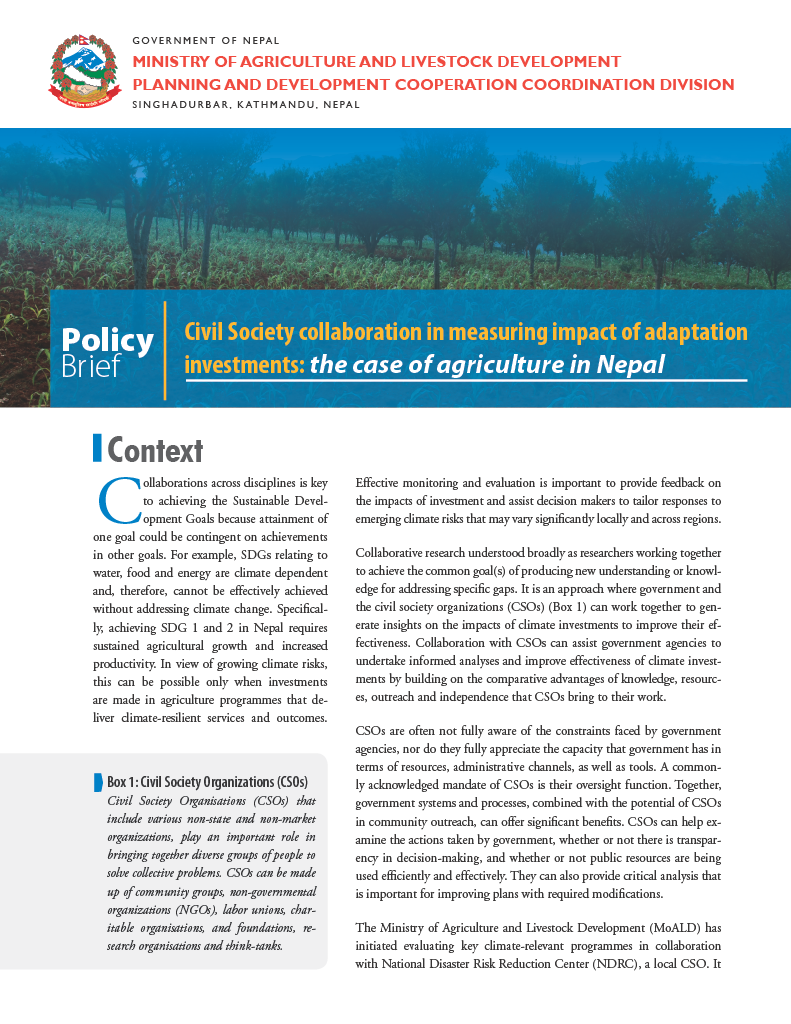The document “Civil Society collaboration in measuring impact of adaptation investments: the case of agriculture in Nepal” presents some policy recommendations to support effective climate spending for meeting the Sustainable Development Goals (SDGs).
It also shows how collaboration between the government and CSOs can contribute to gauging the impact of climate investments and suggesting ways to improve their effectiveness.
Collaboration across disciplines is key to achieving Sustainable Development Goals because the attainment of one goal could be contingent on the achievement of other goals.
For example, SDGs relating to water, food, and energy are climate dependent and, therefore, cannot be effectively achieved without addressing climate change. Specifically, achieving SDGs 1 and 2 in Nepal requires sustained agricultural growth and increased productivity.
In view of growing climate risks, this can be possible only when investments are made in agriculture programmes that deliver climate-resilient services and outcomes.
The document was retrieved from Nepal’s Ministry of Agriculture and Livestock Development (MoALD) and was published in March 2019.
MoALD has initiated evaluating key climate-relevant programmes in collaboration with National Disaster Risk Reduction Center (NDRC), a local CSO.
It was MoALD’s first-ever collaborative research carried out with a local CSO to examine the impacts of selected programmes in helping vulnerable farmers with particular focus on poverty and gender (MoALMC, 20181 ).
The research was conducted in two districts: Myagdi in the mid-hills and Bardiya, in the Tarai plains. The initiative provided a snapshot of the current gaps in the delivery of climate investments, and generally concluded that climate-related public investments in the agriculture sector were paying off.
Help SAR-Climate keep this document page accurate and updated by suggesting an edit or any corrections here.

